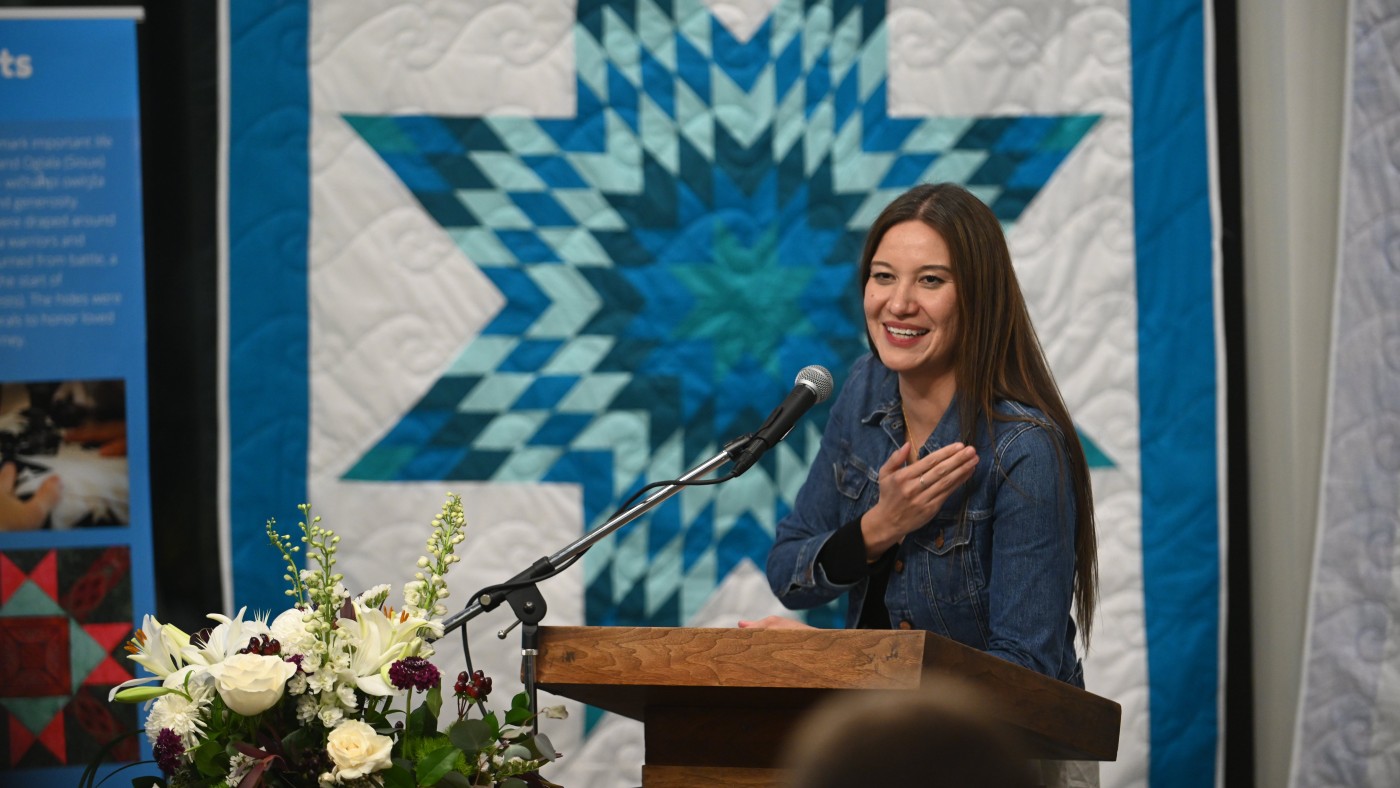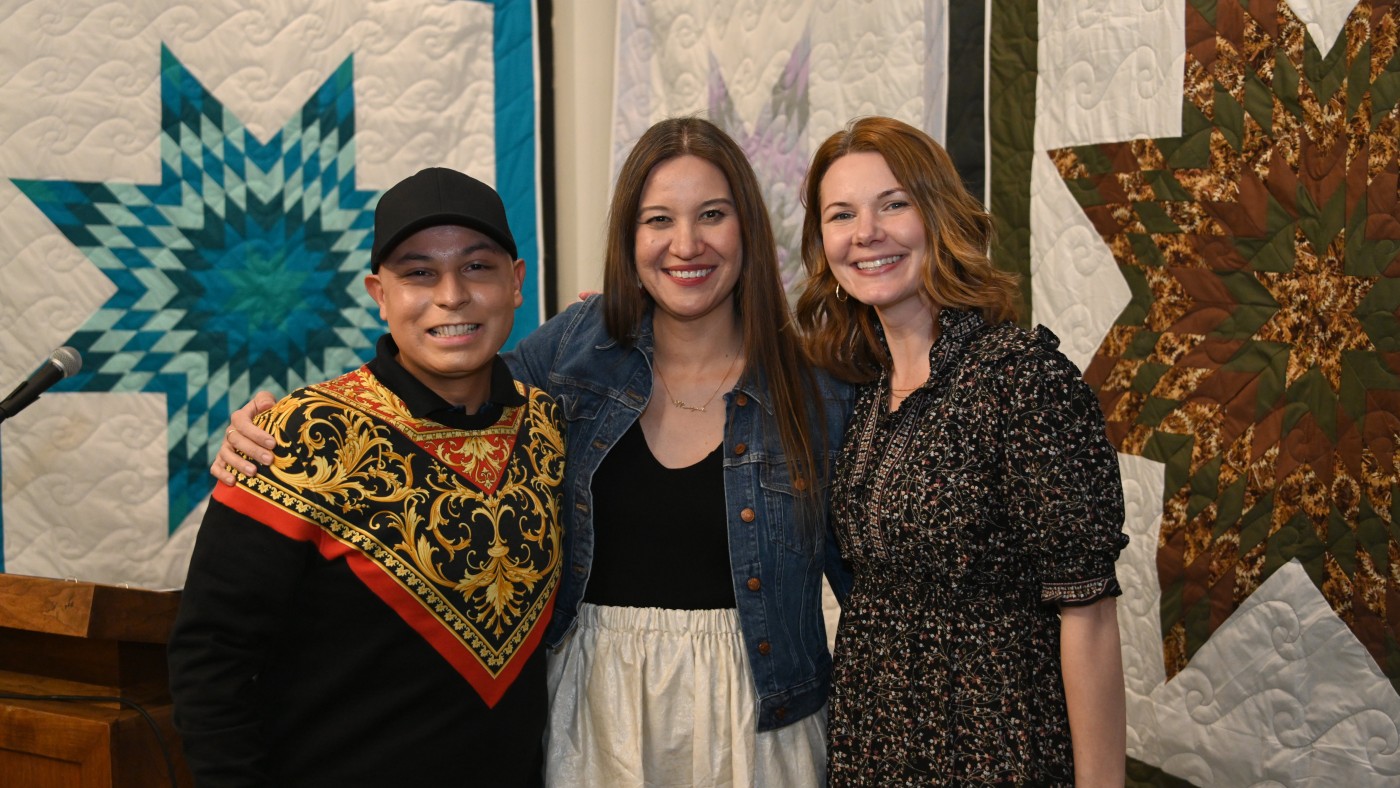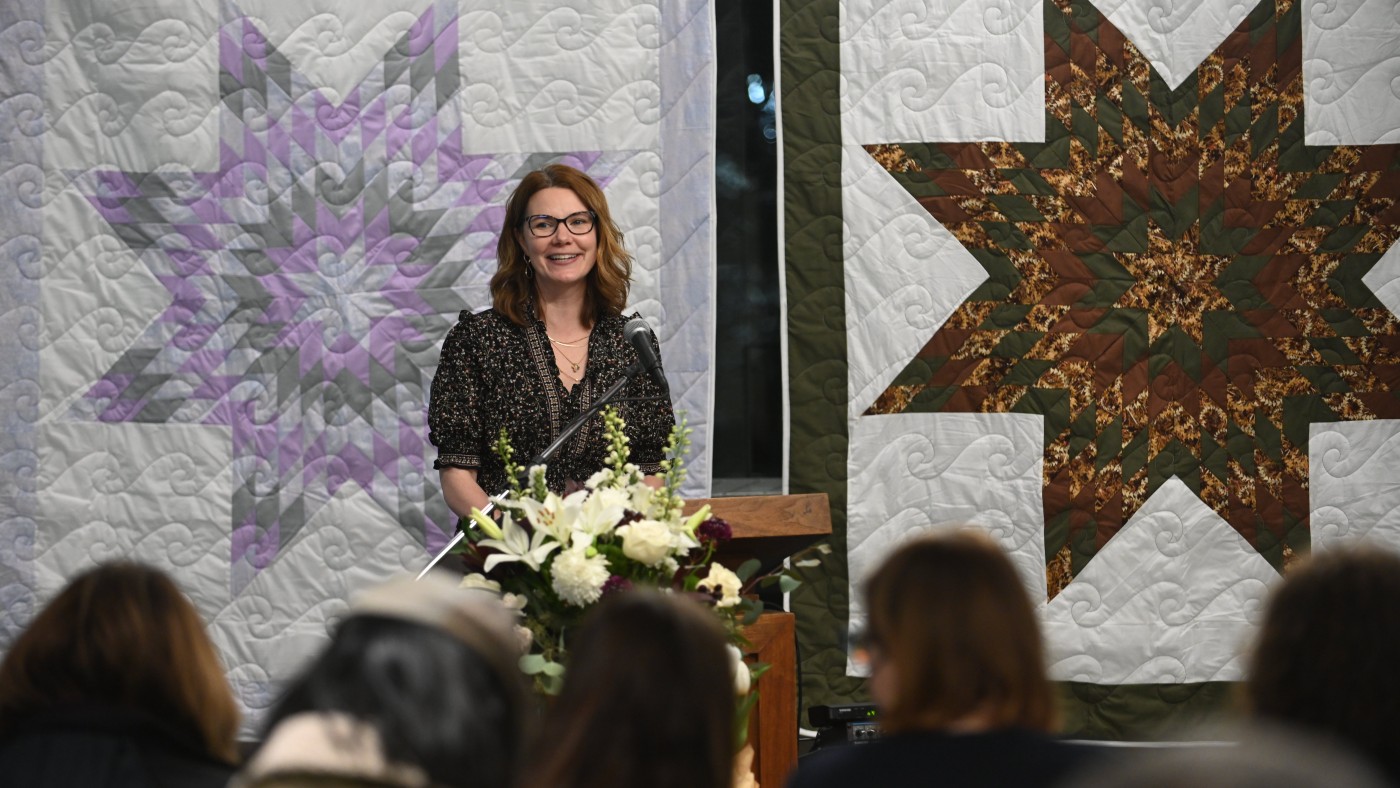Dominican Celebrates National Day of Racial Healing, Centering Indigenous Identity

Dominican University marked the 7th Annual National Day of Racial Healing on Jan. 17 with an emphasis on Indigenous identity and acknowledgment.
With Lakota star quilts as a backdrop, guest speaker Megan Red Shirt-Shaw, of the Oglala Lakota Nation, addressed the importance of Indigenous land acknowledgment by institutions of higher learning that were developed on land from which Native people were displaced.
“A land acknowledgment can not only make a huge impact on a Native student sitting in the audience, as I remember that it always did for me, but it also grounds us. It grounds you in your own identity,” she said.
Growing up, Red Shirt-Shaw said she was always “waiting for someone to show me they remembered Native people were still here. I’d been through the K-12 system where we were virtually erased. I wondered why the cultural identity I’d grown up with in my home wasn’t honored in the classrooms I had to attend day after day.”
Red Shirt-Shaw is director of Native Student Services at the University of South Dakota and the author of a policy paper calling on institutions of higher learning to return lands to Native nations or, if they cannot, provide free higher education to Native students whose traditional homelands are located on lands where colleges and universities now stand.
She addressed this concept in her Day of Racial Healing remarks.
“I contended that colleges and universities are morally obligated to acknowledge the educational needs of Indigenous peoples and to face their ongoing system of power that perpetuates the oppression and erasure of Indigenous peoples and their knowledge systems,” she said.
Red Shirt-Shaw encouraged Dominican University to look at what it, too, does for Native students.
“Racial healing is intersectional and is rooted in the possibility that as we lift up other oppressed communities we do the work for our identity groups as well,” she noted. “We expand our minds to love more to be a little more understanding.”
National Day of Racial Healing originated in 2017 by the W.K. Kellogg Foundation. The annual event, which is observed on the Tuesday following Dr. Martin Luther King Jr. Day, is a time to bring people together and “inspire collective action to create a more just and equitable world,” according to the initiative.
Amy Omi, project coordinator with Dominican University’s Office of Justice, Equity and Inclusion, noted that as the university continues its Truth, Racial Healing and Transformation efforts, one of the pillars of this work involves changing traditional narratives.
“Narrative change compels us to take a critical look at whose stories we center, how we construct and inhabit space, and what traditions we uphold,” she said.
Omi also acknowledged and named the many Indigenous nations that have ancestral roots on the land on which the Dominican campus now stands.
“We pay respect to Indigenous people, past present and future, and their continuing presence in the homeland and throughout their historical diaspora,” she said.
The National Day of Racial Healing at Dominican was sponsored and organized by the Center for Cultural Liberation; Rebecca Crown Library; and Truth, Racial Healing and Transformation.
The library coordinated the commission of the Lakota quilts featured during the event and the quilts remain in the library for viewing.

